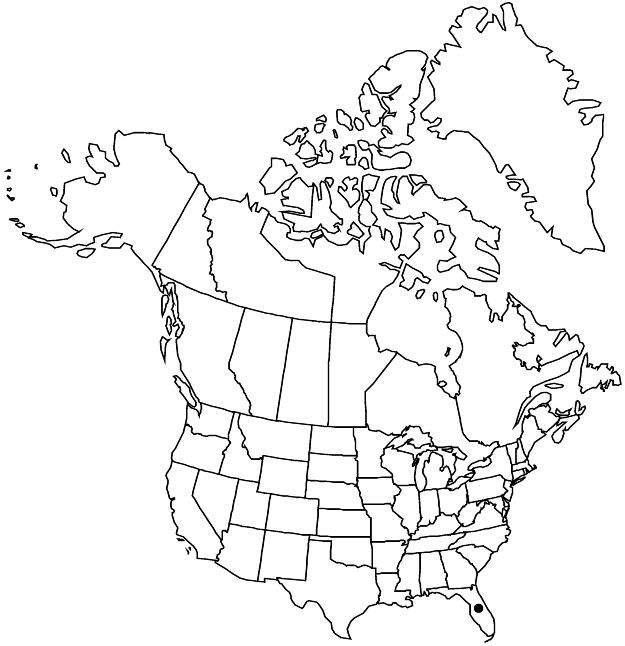Phyllanthus fluitans
Linnaea 32: 36. 1863.
Herbs, perennial, floating aquatic, without caudex or rhizomes, monoecious, 0.5–13 dm; branching not phyllanthoid. Stems terete, not winged, glabrous. Leaves distichous; all well developed; stipules auriculate, pale brown; blade ± orbiculate, 9–17 mm diam., base cordate, apex rounded to shallowly emarginate, both surfaces papillate. Inflorescences cymules, bisexual, with 1–2 staminate and 1–2 pistillate flowers, or flowers solitary. Pedicels: staminate 0.5–1 mm, pistillate spreading in fruit, 0.5–1 mm. Staminate flowers: sepals (5–)6, white or greenish white, flat, 1–1.4 mm; nectary extrastaminal, (5–)6 glands; stamens 3, filaments distinct. Pistillate flowers: sepals (5–)6, white or greenish white, flat, 0.8–1.2 mm, 1-veined; nectary annular, unlobed to lobed. Capsules 2.5–3 mm diam., smooth. Seeds uniformly brown, 1–1.4 mm, verrucose.
Phenology: Flowering and fruiting summer–fall.
Habitat: Slow-moving rivers, ponds.
Elevation: 0–10 m.
Distribution

Introduced; Fla., South America, also introduced in Mexico.
Discussion
Phyllanthus fluitans, the only floating species in the genus, appears to be closely related to P. caroliniensis (H. Kathriarachchi et al. 2006). This popular aquarium plant was first discovered in the flora area in 2010 in the Peace River drainage, DeSoto County (G. J. Wilder and M. P. Sowinski 2010); it appears to be naturalized there despite intensive eradication efforts (M. P. Sowinski, pers. comm.).
Selected References
None.